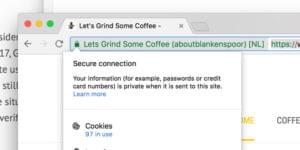This is an edited transcript of a live Q&A session on SitePoint that took place in early August, 2015.
Hi Guilherme! You ran a successful Question and Answer (Q&A) session on the SitePoint forums recently. Congratulations! How do you feel?
Hi Angela, thank you! It was very fun. I feel great, so many people showed up and asked really interesting questions.
Great! Firstly, for those who may not be familiar with your work, could you tell me a little about yourself?
My name is Guilherme Müller, and I’m a freelance web developer based in Curitiba, Brazil. I’ve been working with the web since 2004, and have followed SitePoint for about the same time.
I am a full-stack developer using HTML, CSS, JS, PHP and MySQL. I’m passionate about how languages work together in bringing a web page to life, and I enjoy teaching that. I’m also a graphic designer by training, which helps bridge the gap between the design and programming components.
How did you first become aware of SitePoint? And what prompted you to reach out and create a course?
It’s been a long time! I remember searching the web for the best resources on how to build a website, and SitePoint was the main site that I kept coming back to read. Throughout the years, I had bought and read many of SitePoint’s print books. They were very important in my development. When an announcement was made to trial the beta site (Learnable, now SitePoint Premium), I was one of the first in line.
I’ve always wanted to teach subjects like HTML and CSS, and I saw this as an opportunity and submit work to SitePoint, a company that I’ve always liked! That was when I created my first course, Layout Techniques with HTML and CSS (now deactivated).
Did you have any experience in teaching beforehand, or did you just think “I know a bit of front-end web development, why not try teaching?”
No, I didn’t have much experience in teaching when I recorded my first course. However, building websites every day gave me a lot of experience in beginning a new project over and over again. I figured that many people could benefit from this knowledge, as some people had difficulty identifying which images they should export from a design when working from a PSD and what can be achieved with HTML and CSS in the site’s formation.
To this day I think that many beginners have a lot of questions when it comes to building a new website from scratch or from an established design.
What did you learn about teaching an online course, what did you find surprising?
When we teach, we always learn a lot. I found that the best way to learn a subject is to build a course or write a book about it. You have to know all about the subject and still end up learning more.
This, and the fact that video editing is tough. To produce a ten minute video you spend roughly 2–3 hours recording and editing. Many weekends go by with recording and editing sessions!
Lastly, creating good quizzes for the courses is challenging! You would think it would be easy to create interesting questions for the students, but I find it’s one of the most difficult parts of the process.
Your Q&A had over 1000 views. How was it?
It was great. Everyone had excellent questions and it was a challenge for me to answer them all! I like this kind of exchange very much, because you are in touch with different minds and points of view.
Were there any recurring themes? Perhaps questions that made you stop and think?
There’s some concern about the way preprocessors are taking over and what that means for the work of a front-end developer. The future of HTML and of browser implementations of the spec and whether HTML is prepared for structuring even larger websites and applications?
I think that we are going to see more discussion about scoping and templating in HTML, as this is becoming more and more important for large-scale websites. CSS is also struggling with that, so maybe the spec will move towards features that will help with the building of larger applications. I think that what developers are doing with preprocessors will have an influence in the future of these languages, just like some of jQuery’s features had influence in the direction of JavaScript.
I still think there’s so much to be implemented of HTML5 in the browser. There are elements like the new input types and others like details and summary that still don’t work well. Just take a look at HTML for email, it’s … well, a mess to say the least. I’d like to see these kinds of things sorted out before moving forward. Email isn’t dependent on the browsers per se, but a major upgrade in HTML for email would be great.
We’re now seeing the browsers that once helped introduce the new elements of HTML “fighting” to see which implements this new CSS effect or JS feature before the other. The discussion on HTML itself has died down a little, in my opinion, and could be revisited.
What’s your advice to those learning web development?
My advice is to read, practice and self-assess. Reading books and articles, for me, is the most important aspect. I learned almost all I know through reading. There are a lot of great books and websites out there, SitePoint being one of them, of course.
Practicing is also very important. Without putting things into practice, you’ll arrive nowhere. The best way to practice is to build websites without any framework or library. That way you’ll learn how everything really works.
Finally, to self-assess, to always evaluate and see what could have been done better, is essential. I always make sure that, for every new project I start, I change something in the HTML, CSS, JS or PHP. There is always something that can be improved.
What’s the coolest thing you have done with web?
I’ve been focussing on developing web applications that solve the client’s problems, that are robust and solid. For example, I’ve been developing a web application for Nos Furniture, a Brazilian furniture company. They wanted me to bring the factory, the designer, the store and the consumer together, managed by an admin interface. The system is currently being redesigned, as it’s not fully responsive. Nevertheless, the application worked to eliminate a lot of paperwork … and headaches. Despite its very simple interface, it received a lot of great feedback by the users, mostly store salesmen. I think making something that’s easy to use is the most important thing.
Before we let you go, what are you currently working on, or what can we look forward to in the future?
I am currently working on some videos for SitePoint. They’re going to cover more advanced subjects and should be very interesting, especially if you want to try new things in your next website project. I also have some ideas for future courses. If the readers would like to suggest something related to front-end development, it would be very nice to talk to you all!
Once again, thank you for holding the Q&A session on the forums and joining me for a chat!
If you missed the Q&A session you can still access the conversation here. Otherwise catch up on the Q&A with the video below. If you’d like to watch all of our other Q&A sessions check out our Learn From the Experts compilation.
 Angela Molina
Angela MolinaAngela has been fascinated by and trawling the web since dial-up was the only way to connect. Now she's helping you learn (even more) as the Production Manager at SitePoint Premium.



